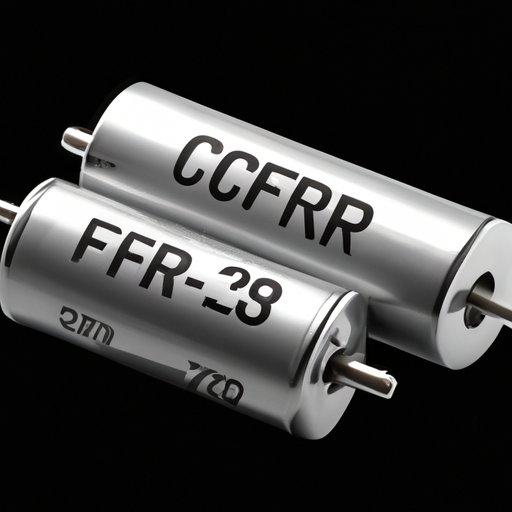Core Functional Technologies of Film Capacitors
1. Dielectric Material: Film capacitors utilize thin plastic films as the dielectric material, which can be made from various polymers such as polyester (PET), polypropylene (PP), and polycarbonate (PC). These materials provide high insulation resistance and low dielectric losses, contributing to the overall efficiency of the capacitor.
2. Low ESR and ESL: Film capacitors typically exhibit low equivalent series resistance (ESR) and equivalent series inductance (ESL), making them suitable for high-frequency applications. This characteristic allows for efficient energy storage and discharge, which is critical in applications requiring rapid charge and discharge cycles.
3. Temperature Stability: Film capacitors maintain stable capacitance values over a wide temperature range, making them ideal for applications in harsh environments. They also have a low temperature coefficient, ensuring consistent performance across varying thermal conditions.
4. High Voltage Ratings: Many film capacitors can handle high voltage applications, which is essential in power electronics and industrial applications. The CFR-25JB-52-1M1, for example, is designed to operate effectively at high voltages, ensuring reliability in demanding environments.
5. Self-Healing Properties: Film capacitors possess self-healing capabilities, meaning that if a dielectric breakdown occurs, the capacitor can recover without permanent damage. This feature enhances reliability and longevity, making them suitable for critical applications where failure is not an option.
6. Environmental Resistance: Film capacitors are resistant to moisture, chemicals, and UV radiation, making them suitable for outdoor and industrial applications. Their durability ensures long-term performance even in challenging conditions.
Application Development Cases
1. Power Electronics: Film capacitors are extensively used in power supply circuits, inverters, and converters. Their ability to handle high ripple currents and voltages makes them ideal for smoothing and filtering applications in renewable energy systems, such as solar inverters, where efficiency and reliability are paramount.
2. Audio Equipment: In high-fidelity audio applications, film capacitors are preferred for coupling and bypassing due to their low distortion and high linearity. They help maintain audio signal integrity, which is crucial for high-quality sound reproduction, making them a staple in premium audio equipment.
3. Motor Drives: In variable frequency drives (VFDs) for electric motors, film capacitors are used for DC link applications. Their high voltage and current handling capabilities ensure efficient operation and improved performance of motor control systems, contributing to energy savings and enhanced motor lifespan.
4. Telecommunications: Film capacitors are used in RF applications, including filters and oscillators, due to their low loss characteristics at high frequencies. They help improve signal quality and reduce noise in communication systems, which is essential for maintaining data integrity in modern telecommunications.
5. Consumer Electronics: In devices such as televisions, computers, and smartphones, film capacitors are used for decoupling and filtering applications. Their compact size and reliability contribute to the overall performance and longevity of consumer electronics, ensuring that devices operate smoothly and efficiently.
6. Automotive Applications: With the rise of electric vehicles (EVs) and advanced driver-assistance systems (ADAS), film capacitors are increasingly used in automotive electronics for energy storage, filtering, and signal processing. Their ability to withstand harsh conditions and provide reliable performance is crucial for ensuring safety and efficiency in modern vehicles.
Conclusion
The CFR-25JB-52-1M1 film capacitor exemplifies the advanced technology and versatility of film capacitors in various applications. Their unique properties, such as low ESR, high voltage ratings, and self-healing capabilities, make them indispensable in modern electronic designs. As technology continues to evolve, the demand for reliable and efficient capacitors will only increase, further solidifying the role of film capacitors in the electronics industry. The ongoing development of new materials and manufacturing techniques will likely enhance their performance and expand their applications, ensuring that film capacitors remain a key component in the future of electronics.






